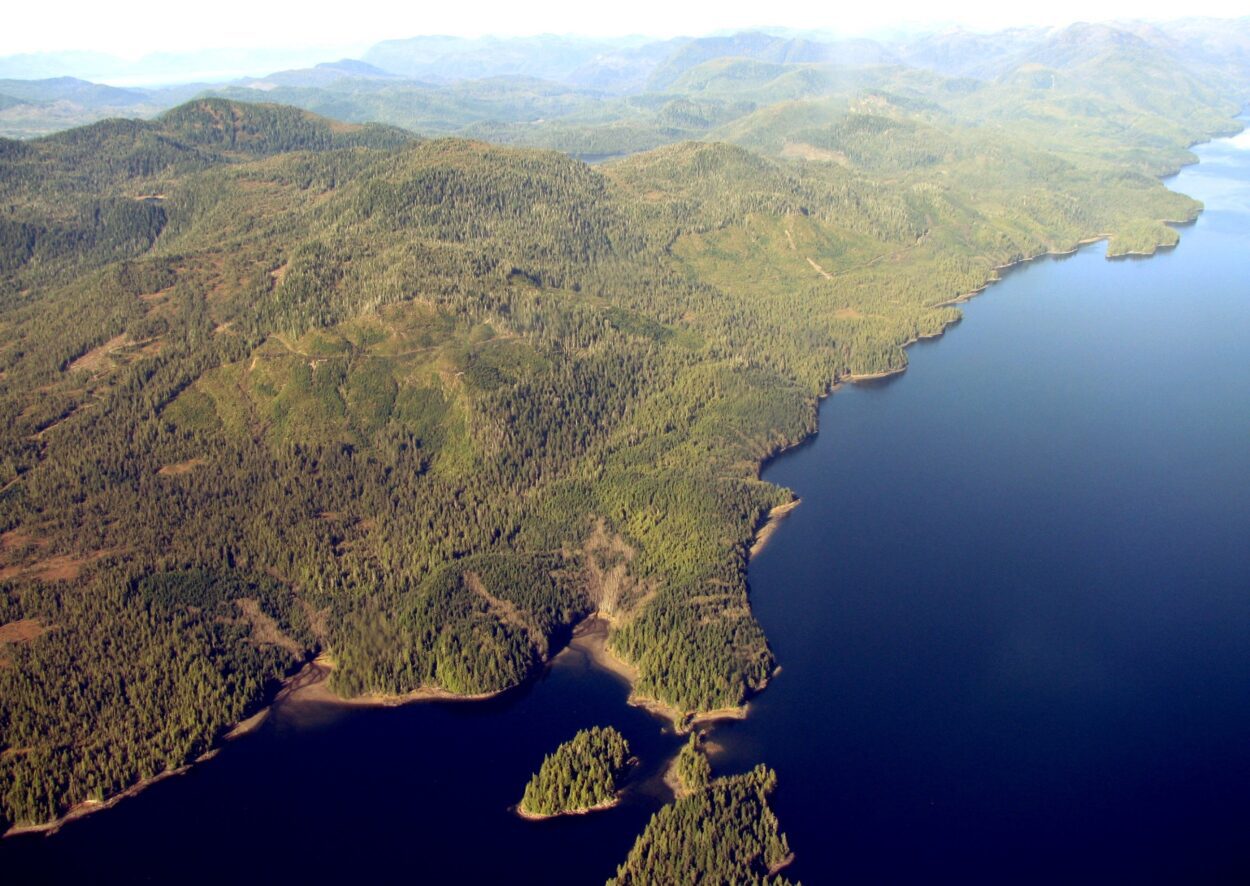
The western shores of Carroll Inlet in 2015. This region about 10 miles northeast of Ketchikan is part of the South Revilla project area where the U.S. Forest Service proposes to offer more than 5,000 acres of old growth Tongass National Forest to commercial loggers. (Photo by Larry Edwards/Alaska Rainforest Defenders)
The federal government proposes to offer more than 5,000 acres of old growth forest in Tongass National Forest for commercial logging. While Conservationists are sounding the alarm over the project near Ketchikan, the timber industry has raised questions over whether it would be viable.
The U.S. Forest Service says the South Revilla project is intended to support around 300 jobs in the region’s economy. The timber sales would be over the next 15 years and would be a mix of cutting old and young stands of trees.
It’s largely in the Carroll Inlet area, a patchwork of federal and state lands, mixed in with swathes already clear-cut by the Alaska Mental Health Trust Authority.
“We can’t do much about what’s happening with the mental health trust,” said Larry Edwards of Alaska Rainforest Defenders in Sitka, “But on the public lands that either the state or the federal government own, we shouldn’t be doing any more logging in this area at all.”
The Forest Service’s draft environmental review says removing old-growth habitat may further fragment the forest, eliminating connectivity important to deer, wolf, mountain goat, marten and bear in what it admits is an area used by subsistence hunters.
But it justifies the work, saying a steady supply of economic timber is needed to support Southeast Alaska’s forest products industry.
“The Forest Service’s going back in and they’re just picking out isolated areas of old growth that are leftover,” Edwards added.
Now, the agency is prevented by law from offering timber sales that appraise negative — that is, would cost it more to prep for sale than it would get in return.
The agency says it’s already spent about $5.1 million in planning and preparation for this project. Offering a timber sale would cost another $8 million or so. Yet using its own numbers, all of the proposed timber sales would put the agency in the red — which it can’t do by law.
It’s also unclear whether there would be any takers under current market conditions.
The Alaska Forest Association commented last year that the South Revilla project overlaps with a previous 2,200-acre Saddle Lakes project that was aborted over lack of interest.
“Why waste time analyzing and marking harvest units that have no hope of being financially viable?” the timber industry group wrote last summer.
Eric Nichols of Alcan Forest Products is skeptical the South Revilla project will find a buyer under current market conditions.
“You can’t buy it just to lose money on it,” he said.
Nichols company exports raw logs to Asia. The U.S. trade war with China has led to a lot of uncertainty as tariffs are scheduled to be reimposed next year for his Ketchikan-based firm.
So, timber operators may not be willing to incur the risk at this moment.
“That’s going to make the decision to buy anything very difficult,” Nichols said, “trying to understand what’s going to happen between the U.S. and China.”
The Forest Service says timber sales would decrease deer habitat, the primary prey for Alexander archipelago wolves, for 150 years or longer. A petition was recently filed again to have Southeast Alaska’s wolves listed under the Endangered Species Act.
Notice of a draft environmental impact statement was published in the federal register on Friday, Sept. 4. That triggers a 45-day comment period to weigh in on the project.





